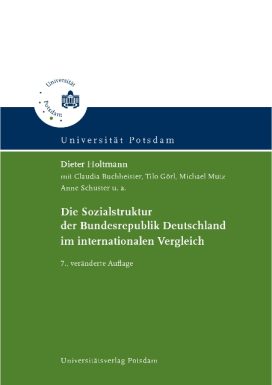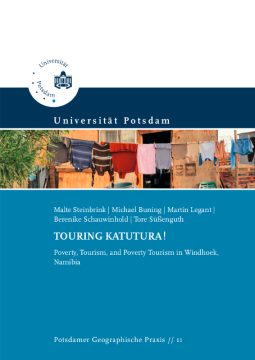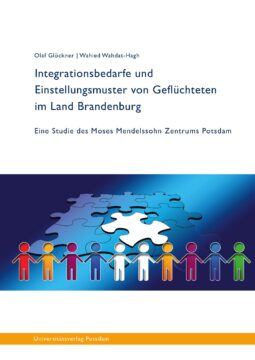For the international comparison of societies a system for continuous observation is proposed, based on a discussion of moral values in social philosophy, which results in eight criteria of performance of societies in the following living conditions: Wealth and growth; ecological sustainability; innovation; social security by supporting benefits in the case of risk and preventive by investments in education; appreciation of peculiarities (women friendliness and migrants friendliness); equality of are sources and rights; social integration; autonomy (“freedom of choice and capabilities”). In our approach we do not assume a uniform pathway of modernization in the direction of growth, participation and inclusion, but differentiate in extension of the “three worlds of welfare capitalism” of Esping-Andersen (1990) (at least) five different institutional pathways of modernization: The social democratic (universalistic) path, the economically liberal path, the status-conserving path, the familistic path and the development of the group of post-socialist countries, which are in a process of differentiating. We compare 36 countries including all members of the EU and the anglo-saxon countries as well as Japan. For the analysis of social structures the following models of social positioning are considered: Marx, Weber, Roemer/Wright; social strata; occupational positions, Goldthorpes model; Bourdieu, Vester, Hradil. As fields of application are discussed: Service societies and employment, education; wealth, income, property and poverty; social mobility; social inequalities between women and men; demographic structure and forms of living; life styles; welfare regimes and social security; individualization and its counter-movements; summarizing comparison of the living conditions in different countries and welfare regimes.
ISBN: 978-3-86956-165-3
306 pages
Release year 2012
15,00 €
Non-taxable transaction according to § 1 (1) UStG/VAT Act in combination with § 2 (3) UStG/VAT Act a. F. Providing this service, the University of Potsdam does not constitute a Betrieb gewerblicher Art/Commercial Institution according to § 1 (1) No. 6 or § 4 KStG/Corporate Tax Act. If the legal characterization of our business is changed to a commercial institution subsequently, we reserve the right to invoice VAT additionally. zzgl. Versandkosten
For the international comparison of societies a system for continuous observation is proposed, based on a discussion of moral values in social philosophy, which results in eight criteria of performance of societies in the following living conditions: Wealth and growth; ecological sustainability; innovation; social security by supporting benefits in the case of risk and preventive by investments in education; appreciation of peculiarities (women friendliness and migrants friendliness); equality of are sources and rights; social integration; autonomy (“freedom of choice and capabilities”). In our approach we do not assume a uniform pathway of modernization in the direction of growth, participation and inclusion, but differentiate in extension of the “three worlds of welfare capitalism” of Esping-Andersen (1990) (at least) five different institutional pathways of modernization: The social democratic (universalistic) path, the economically liberal path, the status-conserving path, the familistic path and the development of the group of post-socialist countries, which are in a process of differentiating. We compare 36 countries including all members of the EU and the anglo-saxon countries as well as Japan. For the analysis of social structures the following models of social positioning are considered: Marx, Weber, Roemer/Wright; social strata; occupational positions, Goldthorpes model; Bourdieu, Vester, Hradil. As fields of application are discussed: Service societies and employment, education; wealth, income, property and poverty; social mobility; social inequalities between women and men; demographic structure and forms of living; life styles; welfare regimes and social security; individualization and its counter-movements; summarizing comparison of the living conditions in different countries and welfare regimes.
Recommended Books
-
 2016
2016Malte Steinbrink, Michael Buning, Martin Legant, Berenike Schauwinhold, Tore Süßenguth
Touring Katutura!
16,00 €Non-taxable transaction according to § 1 (1) UStG/VAT Act in combination with § 2 (3) UStG/VAT Act a. F. Providing this service, the University of Potsdam does not constitute a Betrieb gewerblicher Art/Commercial Institution according to § 1 (1) No. 6 or § 4 KStG/Corporate Tax Act. If the legal characterization of our business is changed to a commercial institution subsequently, we reserve the right to invoice VAT additionally.
zzgl. Versandkosten
Add to cart -
 2009
2009Anja Bruhn, Julia Fatianova, Franziska Harnisch, Christiane Mochan, Björn Schülzke, Tanja Zischke, Jonas Grutzpalk
Beiträge zu einer vergleichenden Soziologie der Polizei
6,50 €Non-taxable transaction according to § 1 (1) UStG/VAT Act in combination with § 2 (3) UStG/VAT Act a. F. Providing this service, the University of Potsdam does not constitute a Betrieb gewerblicher Art/Commercial Institution according to § 1 (1) No. 6 or § 4 KStG/Corporate Tax Act. If the legal characterization of our business is changed to a commercial institution subsequently, we reserve the right to invoice VAT additionally.
zzgl. Versandkosten
Add to cart -
 2019
2019Olaf Glöckner, Wahied Wahdat-Hagh
Integrationsbedarfe und Einstellungsmuster von Geflüchteten im Land Brandenburg
8,50 €Non-taxable transaction according to § 1 (1) UStG/VAT Act in combination with § 2 (3) UStG/VAT Act a. F. Providing this service, the University of Potsdam does not constitute a Betrieb gewerblicher Art/Commercial Institution according to § 1 (1) No. 6 or § 4 KStG/Corporate Tax Act. If the legal characterization of our business is changed to a commercial institution subsequently, we reserve the right to invoice VAT additionally.
zzgl. Versandkosten
Add to cart -
 2014
2014Exil oder Heimat?
17,50 €Non-taxable transaction according to § 1 (1) UStG/VAT Act in combination with § 2 (3) UStG/VAT Act a. F. Providing this service, the University of Potsdam does not constitute a Betrieb gewerblicher Art/Commercial Institution according to § 1 (1) No. 6 or § 4 KStG/Corporate Tax Act. If the legal characterization of our business is changed to a commercial institution subsequently, we reserve the right to invoice VAT additionally.
zzgl. Versandkosten
Add to cart
Publisher Info
Contact
Potsdam University Library
University Press
Am Neuen Palais 10
14476 Potsdam
Germany
verlag@uni-potsdam.de
0331 977-2094
0331 977-2292





